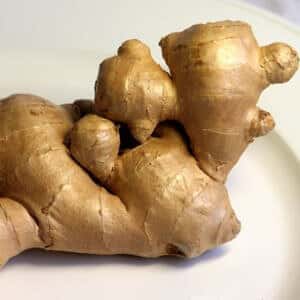
The acid-suppressing drugs known as proton pump inhibitors are intended for treating serious acid reflux known as gastroesophageal reflux disease, or GERD. In practice, though, medicines such as esomeprazole (Nexium), lansoprazole (Prevacid), omeprazole (Prilosec), pantoprazole (Protonix) and others are prescribed for a lot of different digestive difficulties.
Stopping one of these medicines can be a challenge. After a few months, the body adapts to the drug, and quitting it suddenly can result in rebound heartburn that may be ferocious. Gradual tapering of the dose is one tactic that many people find helpful. This reader added an additional remedy to take the edge off the rebound reflux.
Q. I weaned myself off Nexium very gradually. It took four months, but it was successful. I found taking ginger capsules morning and evening very helpful.
Ginger tea is good too, but the capsules are more convenient. I wish I had used them much sooner in the weaning process. Are there any health concerns about consuming so much ginger (one gram) daily?
A. Ginger has traditionally been used to treat nausea, vomiting and other digestive distress. Despite this, some people report gastrointestinal symptoms such as heartburn or diarrhea, especially at high doses.
Obviously that did not affect you, since you were using it to ease the heartburn that can be triggered when you stop taking a medicine like esomeprazole (Nexium) or omeprazole (Prilosec). The dose that you used is within the usual dosing range, which runs from about 500 mg to about 2 grams per day.
Possible Drug Interactions
There are some potential interactions: ginger should not be taken together with the blood pressure pill nifedipine, as it might lead to bruising or bleeding. It might not be wise to take ginger with the anticoagulant warfarin for the same reason.
We provide information about other natural approaches to getting off acid-suppressing drugs in our Guide to Digestive Disorders.

